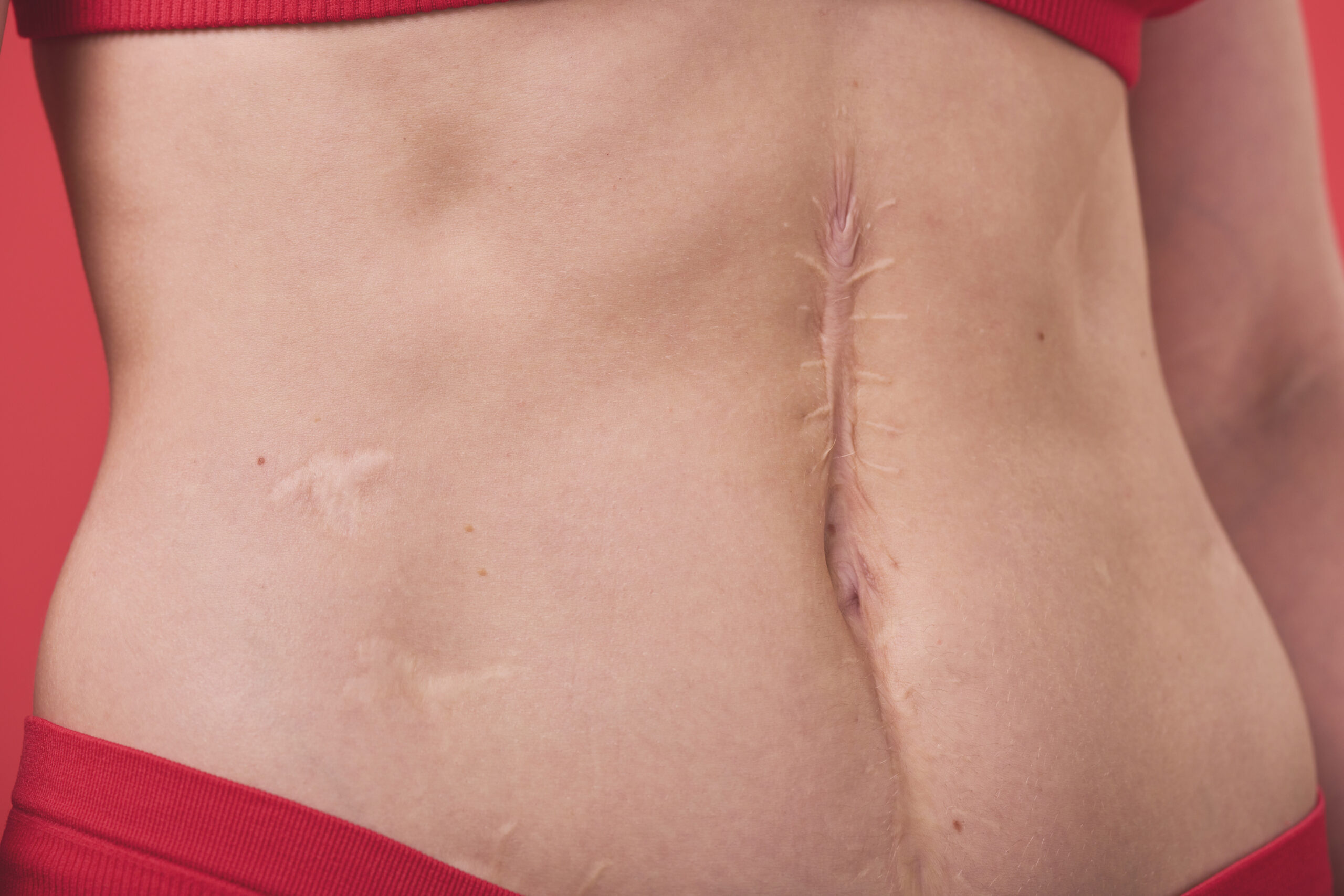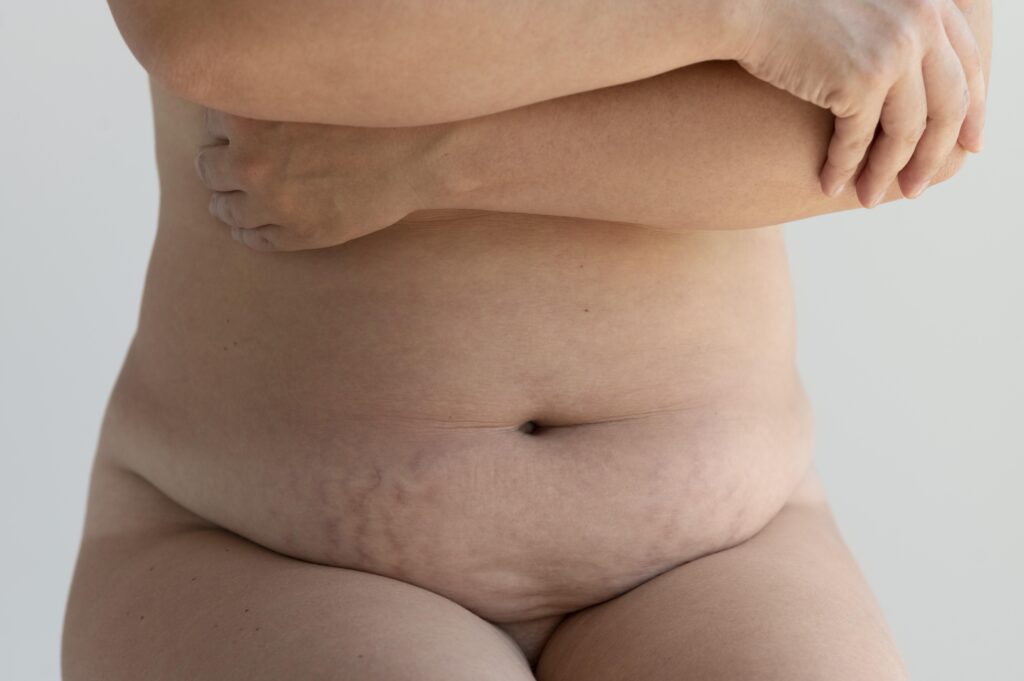
Management of caesarean scars: Managing cesarean scars involves various approaches aimed at promoting healing, minimizing discomfort, reducing the appearance of scars, and preventing complications. Here are some common strategies:

Management Of Caesarean Scars:
Here are some common strategies for management of caesarean scars:
- Wound Care: Proper wound care is essential for promoting healing and preventing infections. Follow your healthcare provider’s instructions regarding wound cleaning, dressing changes, and any prescribed medications.
- Keep the Incision Area Clean and Dry: Avoid exposing the incision area to excessive moisture, and keep it clean to prevent infection. Pat the area dry after bathing.
- Supportive Garments: Some women find wearing supportive garments, such as abdominal binders or compression garments, helpful in providing comfort and support to the incision area.
- Scar Massage: Massaging the scar tissue gently can help improve circulation, break down scar tissue, and reduce scar thickness. Use a moisturizing cream or oil to massage the scar in circular motions.
- Scar Treatment Products: There are various over-the-counter scar treatment products, such as silicone sheets or gels, that may help reduce the appearance of scars. These products work by hydrating the scar tissue and creating a barrier to protect it from external irritants.

Management Of Caesarean Scars:
Here are some common strategies for management of caesarean scars:
- Sun Protection: Protect the scar from sun exposure, as UV radiation can cause discoloration and make the scar more noticeable. Apply sunscreen or cover the scar with clothing when going out in the sun.
- Stay Active: Gentle exercise can help promote blood circulation and prevent stiffness around the scar tissue. However, avoid strenuous activities until your healthcare provider advises it’s safe.
- Healthy Diet: Eating a balanced diet rich in vitamins, minerals, and protein can support the healing process and promote healthy skin regeneration.
- Stay Hydrated: Drink plenty of water to keep your skin hydrated, which can aid in the healing process.
- Follow-up with Healthcare Provider: Attend all scheduled follow-up appointments with your healthcare provider to ensure proper healing and address any concerns or complications promptly.
It’s essential to consult with your healthcare provider before trying any new treatments or techniques, especially if you have any underlying health conditions or concerns about your scar’s healing process. They can provide personalized recommendations based on your individual circumstances.
